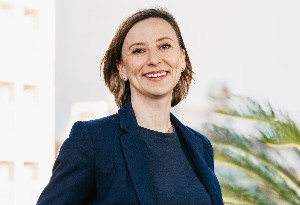Invest like a woman
Women are driving the economy forward, Fidelity International have revealed that women’s incomes have increased to $24 trillion in 2020, up from $20 trillion in 2018. It is expected that by 2030 there will be more than 100 million women in the workforce globally.
Friday, March 3rd 2023, 12:36PM
by Mint Asset Management

By Aga Krzeczkowska
Although these are steps in the right direction, women still face challenges that men do not, such as the gender pay gap, and retirement gap and overall only a third of women see themselves as investors.
Other research from Fidelity’s 2021 Women and Investing Study, has shown that of American women 50 % are more interested in investing and 42% have more to invest since the start of the pandemic. In a follow-up to this study in 2022, Fidelity looked at how women are approaching financial decisions and changing behaviours. Of the 2,015 adults surveyed who had opened an investment account, the study showed that:
Of the women between the ages of 18 – 35:
- 50% have either started investing in the past six months or plan to in the next 6
- 37%created or updated a financial plan in the last six months
- 35% started or added to an emergency fund
- 37% believe it’s important to just start investing, any amount is OK
Of women aged 36+ :
- 36% regret waiting too long to start saving for retirement
- 70% believe it is important to educate the next generation about investing
- 57% believe it’s important to just start investing, any amount is OK
Overall, 57% of women are motivated to invest their money for financial independence. It looks like things are moving in a positive direction for women, the facts show that we are interested in investing and our financial futures, but there still appears to be a lack of confidence.
So how do we empower women to become more involved in their finances and their financial futures?
The Fidelity International 2021 study shows us that while more than 50% of women are actually in control of their household finances they find making decisions about investing difficult and tend to prefer the safety and easiness of cash deposits. While we know cash is king in many situations it is the lowest returning asset class over the long-term and it carries a major opportunity cost. It is unlikely women will be able to close the retirement gap by just holding cash.
Looks like what is needed is more information on available investment options, how to access information, and how to access advice, for free. In this day and age a lot of information is freely available, we just need to make sure women know where to look.
Firstly, we need to get better at creating access to financial advice. A lot of authorised advisers will not charge for the first or even subsequent planning meetings, they may not even charge for the preparation of a financial plan. We need to direct people to the Financial Advice New Zealand directory of advisers.
Sorted.org website is a good place to start your financial planning journey, it has a lot of useful tools and calculators – for free. And then there will be webinars, live chats, and podcasts. Some very useful and valuable content is all out there.
If useful information is out there why aren’t women better at accessing it, and reaching out?
Last’s year FSC’s Campaign on It Starts with Action highlighted how important it was for women to simply start talking about money. Money and finances still remain a ‘taboo’ topic for some.
If we start talking then we might find out that a friend has some good tips, and can recommend a helpful adviser or a website or podcast. They may have attended a useful seminar, their insurance broker might have suggested they see a financial adviser as clearly they are holding too much cash in the bank, or they might have attended a KiwiSaver workshop at work.
You can read more about opening up the money conversation in my article Let’s Talk About Money The FSC also developed some fun question cards designed to start conversations and share knowledge among women.
The data is clear, women are becoming wealthier, so we need to be savvy with how we manage it, to help not only secure our own financial future but also help combat some of the societal problems we are facing. We need to talk about it, build our confidence and break down this taboo topic, by supporting each other with advice, tips, and suggestions – especially from trusted professionals in our network. Finally, we need to educate ourselves by using the tools and resources available to us, there is so much out there from podcasts, to retirement calculators, to financial adviser directories. All of this will help us make informed decisions about how best to achieve our financial, lifestyle, and retirement goals and be more in control.
Resources:
Fidelity 2021 Fidelity Investments Women & Investing Study2021.pdf
Fidelity International 2021 Global Women and Money 2021 report.pdf
Fidelity 2022 Money Moves Study 2022
Disclaimer: Aga Krzeczkowska is a Senior Financial Adviser at Sage Wealth Management. The above article is intended to provide information and does not purport to give investment advice.
Mint Asset Management is the issuer of the Mint Asset Management Funds. Download a copy of the product disclosure statement.
Mint Asset Management is an independent investment management business based in Auckland, New Zealand. Mint Asset Management is the issuer of the Mint Asset Management Funds. Download a copy of the product disclosure statement at mintasset.co.nz
| « The global inflation bogeyman slips away | Ryman shareholders pay a hefty penalty » |
Special Offers
Comments from our readers
No comments yet
Sign In to add your comment
| Printable version | Email to a friend |









